
Learn about the legendary life of Joseph Medicine Crow and his contributions to the world of literature.
- Subject:
- Arts and Humanities
- History
- Literature
- U.S. History
- Material Type:
- Unit of Study
- Date Added:
- 07/06/2022

Learn about the legendary life of Joseph Medicine Crow and his contributions to the world of literature.
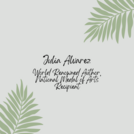
Julia Alvarez was born in 1950 in NYC. Shortly after her birth, she and her parents returned to their home country, the Dominican Republic (Chicago Public Library, 2004). 10 years later, Julia Alvarez along with her family was forced to flee to the United States because of her father’s involvement in trying to plan to overthrow the dictator, Trujillo (Chicago Public Library, 2004).
Julia found it difficult to fit into her new life in the United States and she found it challenging to learn the English language. Julia experience alienation from her peers and prejudice because she was an immigrant (Chicago Public Library, 2004).
Julia said, “I consider this radical uprooting from my culture, my native language, my country, the reason I began writing” (Alvarez, 2020).
Alvarez earned her undergraduate degree from Middlebury College in 1971 and a master’s degree in creative writing from Syracuse University in 1975 (Chicago Public Library, 2004).
Julia Alvarez has published many books in her career as a writer; many in both English and Spanish. How the Garcia Girls Lost Their Accents was published in 1991 as Julia’s first novel. It told the story of four immigrant sisters from the Dominican Republic adjusting to life in the United States. It was the first novel written by someone from the Dominican Republic in the English language. How the Garcia Girls Lost Their Accents was the winner of the 1991 PEN Oakland/Josephine Miles Literary Award for works that present a multicultural viewpoint (Lit Lovers, 2022).
Another wonderful book, published in 1994, Time of Butterflies, told the story of the brave women who did not survive the dictatorship. It was a finalist in 1995 for the National Book Critics Circle Award, was a notable book by the American Library Association in 1994, and was chosen as one of the Best Books for Young Adults by the Young Adult Library Services Association and the American Library Association in 1995 (Chicago Public Library, 2004).
In preparing for this video, I read the book Where Do They Go? It is a book for children that explains the death of a loved one. The children want to know where did their loved ones go and through wonderful poetic words and illustrations, a soft answer is given to the children in a way they can understand (Julia Alvarez, 2016).
In addition to writing award-winning books, Julia Alvarez has earned the Pura Belpre and Americas Awards for her young adult books, the Hispanic Heritage Award, and the F. Scott Fitgerald Award. At a ceremony in 2014, Julia received the National Medal of Arts from President Obama (National Endowment for the Arts, 2013).
Julia Alvarez is a wonderful storyteller and author because she writes from her own experiences as an immigrant and embraces multicultural identity. She authors books for children, young adults, and adults. Julia Alvarez writes with poetic words and teaches tolerance of immigrants. Her stories feature characters who have had to show strength when met with alienation, prejudice, adversity, and oppression. She knows how difficult it can be to navigate between two identities; two cultures; She shows how difficult it was for her and for many others how to learn a new way of life and hang on to one’s own culture. She does all of this with poetic words in beautiful stories. Julia Alvarez’s stories are important for people of all ages to read to grow empathy for people of other cultures.
Julia Alvarez is a writer-in-residence at Middlebury College (National Endowment for the Arts, 2013).
Julia Alvarez and her husband founded an organic coffee farm promoting sustainability by using sustainable methods in the Dominican Highlands as a tribute to the women who were killed during the dictatorship. The profits from this farm go to the Alta Garcia Foundation, which promotes literacy programs for the local population (The Mariposa Dr. Foundation, 2021).
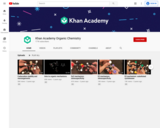
Twelve videos on organic chemistry produced by the Khan Academy.

The economic application of LPP concerned with Diet problem and Profit maximization problem is given with illustrative examples.

This is the continuation of part 1. This video illustrates the formulation of linear programming problem for cost minimization and revenue maximization problems

Video with examples of companies that have prospered and adapted to the uncertainty of Covid-19.

An example learner plan of a software company with a performance gap of 5%.

This lesson goes through how to analyze evidence and reasoning within an argument. It shows how to determine the relevancy and usefulness of evidence. It also shows how to evaluate reasoning to determine whether it is accurate. The lesson shows 1 Kahn Academy video on the subject and 2 examples.
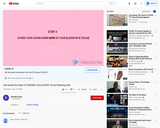
Lets break the Chain of CORONA Virus (COVID-19) by following SSS
Just by following Simple things to follows or practice to protect yourself from yourself and others from CORONA Virus (COVID-19),seven steps to save/protect yourself from yourself and others from CORONA ,Safety of yourself and others from CORONA Virus (COVID-19

Educational videos related to Economics. This video gives step by step method in solving graphically a linear programming problem which involves maximization...
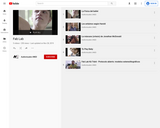
En esta lista se comparten 5 videos de proyectos del Laboratorio de fabricación de la UNED de Costa Rica.

This video shows two ways you can include an online audience in a speech for an online speech class.
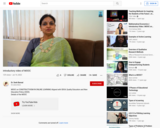
MOOC on CONSTRUCTIVISM IN ONLINE LEARNING Aligned with SDG4, Quality Education and New Education Policy (2020).
MOOC on CONSTRUCTIVISM IN ONLINE LEARNING Aligned with SDG4, Quality Education and New Education Policy (2020).
Details of the MOOC
Course Overview
The transition from in-classroom instruction to online instruction is a complex one involving specialized training in the technical aspects of delivering quality learning environment to the students and specialized training in how to foster the students’ engagement within this new environment. Three schools of thoughts have been widely used and explored to provide guidance for instructional practice: behaviourism, cognitive psychology and constructivism. However of the three, constructivism has been identified as the most suitable one for online learning environment. Without proper pedagogical training and online experience, teachers will continue to replicate their best existing practices on to the online medium. This divergence between what works in the traditional classroom within stable cohort of learners communicating synchronously F2F is qualitatively different from an online asynchronous one. The course will enable you to design and execute your teaching in an online environment effectively based on constructivism strategies which will foster the students’ engagements. This course shall be useful for teachers, trainers, and all persons interested in design and delivery of instruction in an online mode effectively with constructivist perspective.
Course Duration: 6 Weeks course
Mode of Delivery: Synchronous and Asynchronous
Platform: Canvas/ Google meet/ zoom/ Google Classroom
Challenge Level: Advanced
Who can Join: Teacher Educators, Faculties from higher education, Research scholars from education, curriculum designer,School teachers, school principals and heads
Certificate: On successful completion of the course requisites, certificates will be issued to the participants
This course has enabled open enrollment. Students can self-enroll in the course once you share with them this URL: https://canvas.instructure.com/enroll/PN7YET. Alternatively, they can sign up at https://canvas.instructure.com/register
and use the following join code: PN7YET
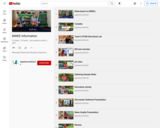
These are STEM lessons and activities focused on stormwater management, watershed education, and water quality.

Quickly following what many expected to be a wholesale revolution in library practices, institutional repositories encountered unforeseen problems and a surprising lack of impact. Clunky or cumbersome interfaces, lack of perceived value and use by scholars, fear of copyright infringement, and the like tended to dampen excitement and adoption. This collection of essays, arranged in five thematic sections, is intended to take the pulse of institutional repositories—to see how they have matured and what can be expected from them, as well as introduce what may be the future role of the institutional repository.
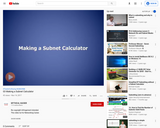
This video is how to create a subnet calculator to be used in subnetting

Important emerging trends in innovation are identified, and their implications for innovation management are explored. Major topics to be discussed include the trend to open information (“open source”) rather than protected intellectual property; the distribution of innovation over many independent but collaborating actors; and toolkits that empower users to innovate for themselves.
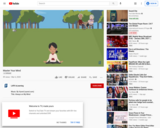
Music: By Vyond (vyond.com)Title: Always on My Mind

Video pembelajaran singkat ini saya gunakan untuk pembelajaran Virtual Reality (VR) yang sedang dirancang. Namun, jika menurut Anda dapat dimanfaatkan sebaga...
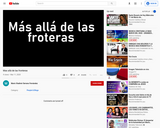
Rap que cuenta un caso de migración y hace reflexionar sobre la situación de los migrantes.